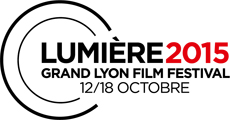Scorsese presents «Goodfellas» (1990)
https://video.ens-lyon.fr/eduscol-cdl/2015/2015-10-20_ANG_Scorsese.mp3
At the time this film was made, by 1989-1990, I had been trying for about eight years to make The Last Temptation of Christ. I was sort of cast out of Hollywood and was wandering in the diaspora of some kind of film-making. During that time we made After Hours, a Hollywood film, The Color of Money, and Nick Pileggi and I, and a number of my friends […], got together and wrote a script of his book Wiseguy. And somehow, I don’t remember how it happened, I owed a film to Warner Brothers. And they had this film, Wiseguy, which we had the change the title to, because there was a television show called Wiseguy.
But at the same time, a very powerful agent in Hollywood, Mike Ovitz, stepped in and was able to get finance for The Last Temptation of Christ, which was an independent film that was picked up in distribution by Tom Pollock at Universal. And quite honestly, I was a little concerned because I didn’t really want to do a [gangster] film – I had done Mean Streets, Taxi Driver’s considered a “gritty New York” film and Raging Bull has some elements of the New York underworld in it – so this was a new way to approach that underworld that I knew. But I wasn’t so enthusiastic about making another film that would be considered a “gangster film”. I was able, during that period, for about a year and a half, with Nick, to hone the script down, shot by shot. So it was a very well-constructed script, with hardly anything added to it while we were shooting, except for one major scene.
So the script was ready, and I asked Warner Brothers to please wait for me, because Mike Ovitz had come through with the money on Last Temptation. They were gracious enough to allow the debt to remain as it was and wait until I finished Last Temptation. And by the time we were finishing Last Temptation, there were a number of people who were around me saying “Don’t make a gangster film, let’s move on to something else” and there were some people who were really feeling that way. And so I lost confidence in it really. Should I make that film? Should I work on that script? Life had changed greatly for me when I made Temptation of Christ.
Of course, I didn’t see this as another about gangsters. I was looking at it from another point of view. I remember that Michael Powell, the great filmmaker, was with Thelma Schoonmaker, my editor and friend, and wanted to read the script. So I think Thelma read it to him, she read him the script, and I remember we were in the editing room, cutting maybe New York Stories or Made in Milan – no, New York Stories I think – and Michael called me and told me that he had just read the script, or had the script read to him, and I said I don’t think I am going to make it. He insisted I make the film, reinforcing my confidence in the style that we had put on the page.
So a lot of what you see in Goodfellas of course is – I am indebted to Michael, Thelma and De Niro, Ray Liotta and Joe Pesci. But if Michael hadn’t made that phone call, told me he had read that script, I don’t know what would have happened. And of course my mother and father are in the film. There’s a lot of what people would consider today improvisation in the film. The scene with my mother is completely improvised by her. Joe just went with her, Bob, they just went. I don’t know. Two cameras. That was it. And [about] the scene that you saw earlier [with] Joe Pesci, “Do you think I’m funny?”: […] Joe didn’t want to make any more films. He said “I’ll be in the film if I can do one scene”. He described something that had happened to him with one of his old street associates, who was no longer on the street but in jail. He acted out the scene for me. And I said: “Perfect!” It’s not in the script, but I knew exactly where to place it.
And so […] we constructed the scene out of a series of rehearsals, which were videoed and written and then I constructed the scene from the improvisations that he and Ray Liotta did. So sometimes improvisation is improvisation, and sometimes it's not really improvisation. […] A lot of it has to do with the editing, […] the timing and the framing.
I thank you. It’s a very long introduction, but I am very pleased.
Pour citer cette ressource :
Martin Scorsese, Scorsese presents Goodfellas (1990), La Clé des Langues [en ligne], Lyon, ENS de LYON/DGESCO (ISSN 2107-7029), octobre 2015. Consulté le 22/02/2026. URL: https://cle.ens-lyon.fr/anglais/arts/cinema/scorsese-presents-goodfellas-1990-



 Activer le mode zen
Activer le mode zen
